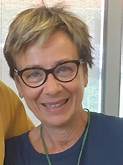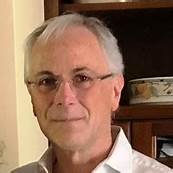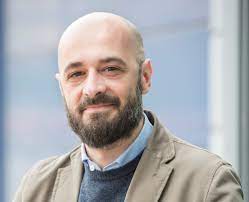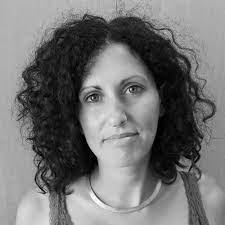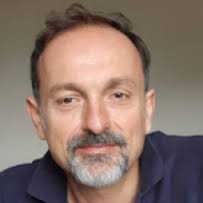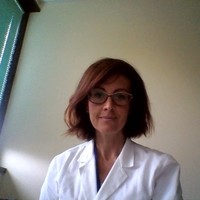Elenco Docenti Master in Drug Design & Synthesis
anno accademico 2022/2023
Lecturers

Elena Petricci is the director of the Master in Drug Design and Synthesis since 2019. She is Associate Professor of Organic Chemistry at Department of Biotechnology, Chemistry and Pharmacy University of Siena, from 2019. Since 2019 she is the coordinator of the Faculty Community of Learning of the University of Siena, working in active learning and teaching methodologies.
After her five-year degree Pharmaceutical Chemistry and Technology and Ph.D. in Pharmaceutical Sciences, she worked as Research associate at University of Siena Her scientific activity has been mainly focused in analytical methods in medicinal chemistry, in the optimisation of small molecules as antiviral and anticancer drugs and in the detection and analysis of compounds and metabolites in biological samples and food. Elena worked in different laboratories both in Europe and US (EPFL in Lausanne [CH], University of Graz [AU], The Scripps Research Institute in San Diego [US]). Her scientific activity has been mainly focused in Green and Medicinal Chemistry. She is an expert in microwave assisted organic synthesis as well as in the development of small molecules and bioconjugates including Antibody Drug Conjugates as anticancer, antiviral and antimicrobial agents.


Elena Dreassi is Assistant Professor at Department of Biotechnology, Chemistry and Pharmacy University of Siena, Siena,Italy from 2006.
After her Five-year degree in Chimica e Tecnologia Farmaceutiche (CTF), five-year degree in Pharmacy and Ph.D. in “Pharmaceutical Sciences”, she worked at University of Siena as Graduate Technician.
Her scientific activity has been mainly focused in analytical methods in medicinal chemistry, in the optimisation of small molecules as antiviral and anticancer drugs and in the detection and analysis of compounds and metabolites in biological samples and food. Since 2010 she collaborates with industry and academia on the evaluating ADME (Absorption, Distribution, Metabolism, and Excretion) properties and pharmacokinetic profile of compounds.

Prof. Docquier received an extensive training in both biochemistry and microbiology, and developed research projects focused on the molecular study of antibiotic mechanism of action and resistance, with a peculiar focus on β-lactamases, which he has been studying for over 20 years. He is an Associate Professor of Microbiology and teaches various aspects of Microbiology (including molecular microbiology, applied and pharmaceutical microbiology, and microbiology for drug discovery) to Medicinal Chemistry and Biotechnology students.
His research activities mainly focus (a) on the study of the molecular aspects of bacterial resistance to antibiotics, and (b) on the functional and structural characterization of β-lactamases, most importantly metallo-β-lactamases and serine-β-lactamases showing carbapenemase activity, as effectors of β-lactam resistance in clinically-relevant bacterial Gram-negative pathogens and as targets for enzyme inhibitors, and more recently, (c) on the discovery, optimization and characterization of novel compounds with antimicrobial properties.

I am Full Professor of Economics at the University of Siena since 2003. Starting with 1995 I am Life Member of Clare Hall College, Cambridge UK. Moreover, I am member of the Center for Blockchain Technologies, University College London, and of the Blockchain Center of the University of Zurich. I was Italian Delegate to the 7th Framework Program (Cooperation-SSH), Deputy Rector and Head of the Economics Department of the University of Siena. I have been Chair in Innovation Procurement at the Maastricht School of Management (NL) economic consultant of CONSIP, the Italian Central Procurement Body, economic consultant of the Japanese Embassy in Rome. Furthermore, I have been consultant of the Italian Ministry of Foreign Affairs, the Dutch Ministry of Defence and the Dutch Ministry of Justice for procurements design. My interest and professionale experience are in procurement, auctions, market design, game and decision theory, contract theory, economics of innovation, health and pharmaceutical economics, blockchain and criptocurrencies. I published several articles in international peer reviewed journals and contributed, as author and editor, to several books. In particular, jointly with Gustavo Piga and Giancarlo Spagnolo I edited the Handbook of Public Procurement , Cambridge University Press.

Dr Daniele Castagnolo obtained his PhD in Medicinal Chemistry at the University of Siena (Italy) in 2006 working with Professor Maurizio Botta on the synthesis of antimycobacterial agents and on the development of microwave assisted metathesis reactions. During his doctoral studies he also joined the research group of Professor Johann Mulzer at the University of Vienna (Austria) as visiting PhD student, working on the total synthesis of the Branimycin side chain.
After completing his Ph.D.,Daniele was appointed as postdoctoral research associate at the Helsinki Universityof Technology (Finland) in the group of Professor Petri Pihko, where he worked on the development of Brønsted acid catalytic reactions for the synthesis of non-anomeric [6.5]-spiroketals. In 2008 Daniele moved back to the Universiy of Siena as Research Fellow, working on metal-catalyzed alkyne reactions for the synthesis of drug-like compounds and on the identification of novel antifungal and antiviral agents. Finally, he completed his postodoctoral studies at the University of Manchester (UK) working in the research group of Professor Jonathan Clayden on the synthesis of tertiary thiols. In 2012, Daniele started his independent research at Northumbria University and later, in September 2015, he moved to King’s College London. Since January 2022, Daniele is Associate Professor in Chemical Sustainability at the Department of Chemistry at UCL.

Ciao, sono Mirjam Cugini, nata a Baden, una cittadina termale a pochi chilometri da Zurigo, il 13 gennaio1965. I miei interessi nell’ambito della comunicazione iniziano molto presto. Sin da piccola, infatti, sono spesso al centro di piccoli capannelli di bimbi, intenta ad organizzare giochi di gruppo e scorribande di cortile, tanto da guadagnarmi il nomignolo di “Frau Kommandant”, una sorta di piccolo “capo” in gonnella.
Da qui il mio indirizzo accademico e professionale. Mi laureo con lode in “Scienze della Comunicazione”, specializzazione in Giornalismo alla facoltà di Lettere e Filosofia dell’ Università di Verona. I miei studi nel campo della comunicazione, dalle neuroscienze comunicazionali, alla comunicazione intra ed inter-personale sono, ad oggi, pressoché ininterrotti con il conseguimento di un mastery in “Pnl e Tecniche di Comunicazione”, all’University Anthony Robbins, Los Angeles CA, i percorsi di formazione e specializzazione in “Structogram”, “Triogram”, “Analisi Transazionale”, “Lettura Veloce” e “Tecniche di Memoria” “Elementi Costitutivi Del Lavoro”, “Guidare con Autorità”, “Comunicazione e Tecniche Comunicative in Azienda”, “Motivazione di produzione: Come?”, e il master triennale appena concluso di Counseling pluralistico integrato a Siena. Attualmente, oltre che come libero professionista sono co-fondatore di Mj Consulting s.r.l, nonché responsabile dei servizi Aziendali di Analisi Comunicazionale Personale ed Interpersonale – ACP /ACPI, analisi Biostrutturale e Structogram, Time-Management Strategy – TMS, Empowerment Comunicazionale Aziendale. Dagli anni ’90 mi sono occupata di realtà eterogenee e per questo stimolanti. MI piace ricordarne alcune: Istituto Moda Industriale, BBV, Noema, Fondazione Arena di Verona, Nuova Media Italia, Nazionale Cantanti, Uboat, DR Moto dal Cuore, Andrea Manni ltd., Porto della Maremma Spa, Pri.Ma.Tex, Confcommercio, Confartigianato, Betty Group, Rockland, ItStudio, Fondazione Vita ITS UniSi, etc
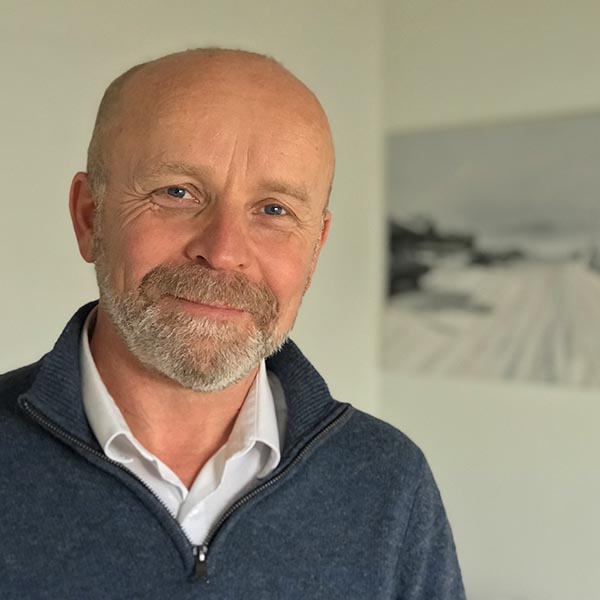
Russ Thomas is Head of Business Development of Symeres, a company headquartered in Nijmegen, the Netherlands and focused on R&D contract research with pharma and biotech companies around the world.
After his Ph.D in medicinal chemistry at the University of Exeter, Russ started work in medicinal chemistry at Glaxo (now GSK) in Verona Italy, where he worked on anti-infective and CNS projects, becoming head of chemistry for the bacterial pathogenicity therapeutic area.
He then became Department Head at Evotec in Oxfordshire working on a range of medicinal chemistry projects in fields such as oncology, antivirals, and reproductive health.
In 2004 Russ took up the position of Head of Chemistry at Siena Biotech, in Siena, Italy, progressing projects in the fields of neurodegenerative diseases and neuro-oncology. At Siena, Russ then became Director of Portfolio Operations & External Alliances, managing joint ventures with companies including Roche & Wyeth/Pfizer. After a year as head of research at Proteros, a structural biology company in Munich, Russ returned to Siena Biotech as Managing Director.
Russ joined Axxam in Milan, a company focused on in vitro biology and screening in 2015, first as Director of Research and then as Director of Strategic Alliances, before moving to Symeres in 2020. As well as authorship/inventorship of a number of articles and patents, Russ is the author of Exercises in Synthetic Organic Chemistry, published by Oxford University Press.

Chimico organico con 15 anni di esperienza in controllo qualità e sviluppo farmaceutico con focalizzazione sulla fitochimica delle piante medicinali. Dal 2018 cofondatore e direttore scientifico di Materia Medica Processing, start-up che si occupa di trasformazione della canapa industriale. Dal 2009 docente di fitochimica al Master di II livello in Fitoterapia dell’università di Siena.
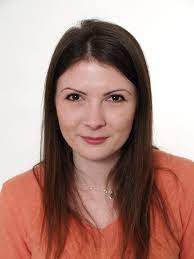
Federica Valentini is currently a postdoctoral researcher at the University of Perugia in the group of Prof. L. Vaccaro. She obtained her PhD degree in Chemical Sciences at the University of Perugia in 2020 under the supervision of Prof. L. Vaccaro. During her doctoral studies has been visiting University of Namur (Prof. C. Aprile) and The Hebrew University of Jerusalem (Prof. D. Gelman) to work on joint collaboration programs. Her research focus is the design and development of novel heterogeneous catalytic systems for sustainable processes.
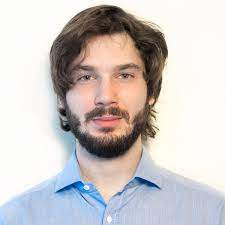
Francesco Ferlin received his PhD degree in Chemical Sciences at the University of Perugia in 2019 with Prof. L. Vaccaro. In 2017 he was a visiting PhD student at the Georg-August University in Göttingen, in the group of Prof. L. Ackermann. In the period 2019-2021 he was postdoctoral researcher at the University of Perugia with Prof. L. Vaccaro. Since 2022 he is fixed-term researcher at The Department of Chemistry, Biology and Biotechnology at the University of Perugia. His main research interests are focused in the field of Green and Sustainable chemistry, C–H functionalizations, flow chemistry and catalysis.
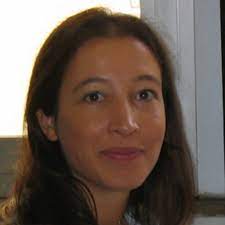
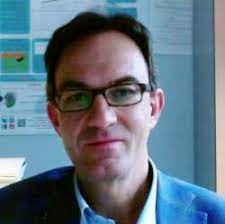
Il Prof. Cavalli si occupa di sviluppo di metodi teorici e di applicazione di strumenti computazionali nelle life sciences e in drug discovery. Questa attività di ricerca ha portato allo sviluppo di algoritmi innovativi per lo studio e la caratterizzazione di sistemi biologici e delle interazioni farmaco-recettore. Inoltre, all’interno di progetti interdisciplinari, questa attività di ricerca ha condotto alla scoperta di numerose molecole biologicamente attive in differenti aree terapeutiche: malattia di Alzheimer, cancro e malattie tropicali dimenticate. L’attività scientifica finora svolta è documentata da oltre 230 articoli, pubblicati su riviste molto prestigiose quali: Nature Commun., Nature Neurosci., Proc. Natl. Acad. Sci. USA, Chem. Rev., Acc. Chem. Res., Angew. Chem. Int. Ed. Engl., Med. Res. Rev., J. Am. Chem. Soc., J. Biol. Chem., J. Med. Chem., Bioinformatics, ecc. (citazioni totali oltre 15000, H-Index 66); da diversi brevetti internazionali (PCT); da numerose comunicazioni (di cui oltre 100 su invito) a congressi nazionali ed internazionali e presso prestigiose istituzioni straniere. Nel 2011, 2013 e 2015, ha organizzato tre congressi internazionali presso il CECAM di Losanna (CH). E’ stato chairman della 21esima edizione del congresso internazionale EuroQSAR tenutosi in Italia (Verona) nel Settembre del 2016. Ha fatto inoltre parte del comitato scientifico e/o organizzatore di numerosi congressi nazionali e internazionali. Il Prof. Cavalli è referee per il MiUR (progetti PRIN e FIRB), per Human Frontier Science Program (HFSP), per l’Austrian Science Fund, per la Swiss National Science Foundation, per la Israel Science Foundation, per la French National Foundation, per l’American Alzheimer’s Association. Dal 2007, è Managing Editor per la rivista Frontiers in Biosciences e fa parte dell’Editorial Board delle riviste MedChemComm (RSC), The Open Applied Informatics Journal, World Journal of Translational Medicine e World Journal of Neuroscience. Da Novembre 2012 è Academic Editor per la rivista PLoS ONE. Nel 2012 è stato nominato membro del Consiglio Scientifico del CINECA. E’ coordinatore nazionale di un progetto PRIN 2010/2011. Ha ricevuto 2 grant PRACE-FP7 e 2 grant DEISA in qualità di PI. Nel 2014, 2016, 2018, ha ricevuto in qualità di PI e co-PI finanziamenti dalla Fondazione Italiana Fibrosi Cistica. Nel 2019 ha ricevuto un grant quinquennale AIRC.
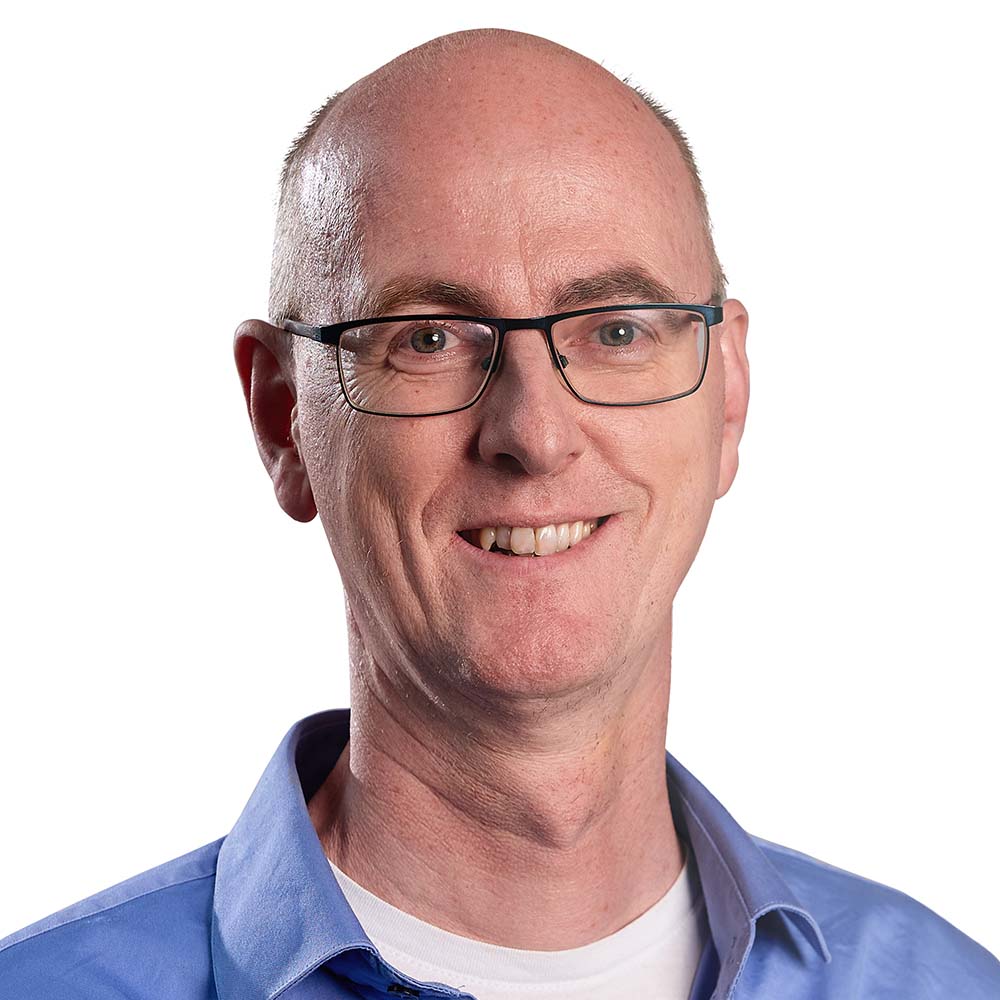
Rutger Folmer is Director of Medicinal Chemistry at Symeres (previously Mercachem) in Nijmegen, The Netherlands. Rutger is responsible for a handful of teams, each running one or more medicinal chemistry projects in the hit to lead and lead opt stages. Before joining Mercachem, Rutger worked for about 20 years at AstraZeneca in Sweden, where he was responsible for various constellations of structural biology groups, with focus on biophysical techniques and fragment-based lead generation. During later years, he also held a portfolio management role in the Respiratory, Inflammation and Autoimmunity disease area.

Carla Ferreri si è laureata in Farmacia all’Università di Napoli nel 1979 e si è specializzata in Farmacia Ospedaliera nel 1981, ma la passione per la sintesi organica e la chimica farmaceutica l’ha portata prima nel 1983 all’Università di San Diego, California, collaborando con il gruppo del Prof. E. Wenkert, e poi dal 1984 nella ricerca universitaria presso il Dipartimento di Chimica Organica e Biologica dell’Università di Napoli, dove ha ricoperto il ruolo di ricercatore confermato per 17 anni. Dal 1990 ha iniziato a collaborare con il dott. Chatgilialoglu nel campo della chimica radicalica, e dal 2001 si è trasferita a Bologna presso il Consiglio Nazionale delle Ricerche, dove ricopre attualmente il ruolo di Primo Ricercatore presso l’Istituto della Sintesi Organica e la Fotoreattività (ISOF- CNR). I suoi attuali interessi di ricerca riguardano il campo dei radicali liberi, sia con studi di base sulle trasformazioni chimiche in condizioni biomimetiche (condizioni acquose, modelli liposomiali), sia con studi applicati alle conseguenze dei diversi tipi di stress sulle principali biomolecole (DNA, proteine, lipidi) ed all’individuazione di biomarcatori correlati allo stress radicalico. E’ autrice di oltre 130 pubblicazioni scientifiche, 3 brevetti di cui 1 internazionale e 1 libro. Nel campo della lipidomica Carla Ferreri si è interessata ai cambiamenti per via radicalica che avvengono a carico degli acidi grassi insaturi presenti nei fosfolipidi di membrana, utilizzando modelli liposomiali e creando librerie molecolari di riconoscimento per acidi grassi mono- e poli-insaturi con geometria trans. Da tale ricerca è scaturito il progetto di innovazione “IL PROFILO LIPIDOMICO DI MEMBRANE CELLULARI: UN APPROCCIO MOLECOLARE APPLICATO ALLA SALUTE UMANA” con larga applicabilità alla medicina ed alla qualità della vita. Per questo progetto Carla Ferreri ha ottenuto nel 2010 il premio ITWIIN come Migliore Innovatrice Italiana e una menzione di merito al Premio Internazionale EUWIIN tenuto ad Helsinki nel 2011. Carla Ferreri è socio fondatore e guida la R&D dell’azienda Lipinutragen, spin-off della ricerca ufficialmente autorizzato dal CNR. Con l’azienda diffonde l’approccio della NUTRILIPIDOMICA, ovvero la strategia per il riequilibrio della membrana eritrocitaria attraverso una combinazione di analisi molecolare e indicazione nutraceutica/nutrizionale personalizzata al bisogno del’individuo, indirizzata a compensare sbilanciamenti dovuti a condizioni di salute, stress o nutrizione scorretta. La nutrilipidomica è già presente sul mercato italiano con gli strumenti di analisi FAT PROFILE e FAT PHARMACY (marchi Europei) e con linee di nutraceutica per la personalizzazione. (vedi: www.lipinutragen.it e www.nutrilipidomica.it per ulteriori informazioni).
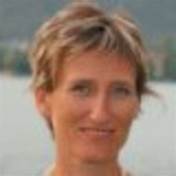
Laura has 22 years of experience in the pharmaceutical industry within bioanalysis, in vitro ADME and drug metabolism roles. Previous relevant position includes member of Merck Research Lab. (Pomezia, Italy) proteomics team. Laura is a Chemistry and Pharmaceutical Technology graduate from the University of Padova (Italy), PhD in Pharmaceutical Sciences (Padova, Italy) and is author and co-author of numerous scientific papers.
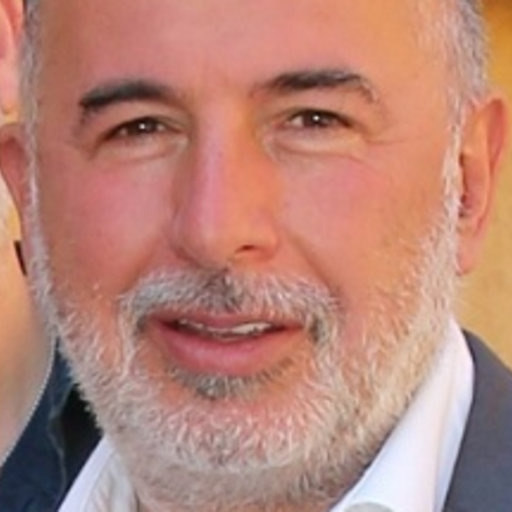
Two bachelor’s degrees at University of Bari [Chemistry and Pharmaceutical Technologies (1986); and Pharmacy (1988)]; creative, self-motivated, “drug hunter” with a strong can-do spirit and sense of urgency, result-oriented and committed to deliver on promises. Thirty years’ experience within the pharmaceutical industry – Menarini Research Group, Sigma-Tau SpA and Alfasigma SpA – involved in many aspects of the drug discovery arena (mainly oncology) up to advanced stage of preclinical development studies. Experience in the Oncology field includes cis-Pt, Distamycins, Anthracyclines, Angiogenesis, Integrins, Retinoids, Heparins & Heparanase, Camptothecins, Hsp90, HDAC, PARP, ADCs. Contribution to the discovery and identification of clinical candidates: Adarotene (ST1926), Roneparstat (SST0001). Indirectly following the stages of development of drug candidates as Sabarubicina (MEN 10755), Gimatecan (ST1481), Namitecan (ST1968). I have managed resources up to 15 people and dozens of partnerships and service in outsourcing. Project Leader (R&D) and Head of Medicinal Chemistry Dpt. at Sigma-Tau. At present, within the Biotech Product Dpt. at Alfasigma . Over about 30Y I have coordinator laboratories and projects of new compounds with antitumor activity.
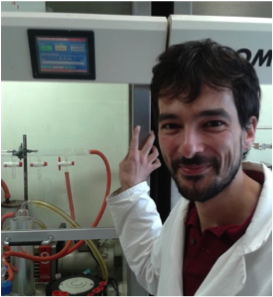
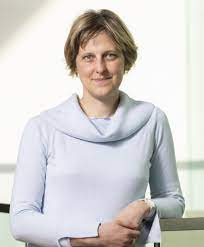
Claudia Sala trained as molecular microbiologist in the laboratory of Prof. Daniela Ghisotti, at the University of Milan (Italy), where she obtained her degree in Biological Sciences in 2000 and the PhD degree in Genetics and Molecular Biology in 2003. Her PhD thesis dealt with transcriptional regulation of the furA and katG genes in mycobacteria in response to oxidative stress. In the framework of the EU FP6 “New Medicines for Tuberculosis” (NM4TB) and FP7 “More Medicines for Tuberculosis” (MM4TB), she worked as post-doctoral fellow in the laboratories of Prof. Stewart Cole, at the Pasteur Institute in Paris first and then at the Ecole Polytechnique Fédérale de Lausanne, where she was subsequently promoted to senior scientist. She took active part in several research projects, including functional genomics and investigations on the M. tuberculosis Type VII Secretion System, and established the ChIP-Seq and RNA-Seq technologies in M. tuberculosis. She obtained the certificate of Biosafety Level 3 (BSL3) Safety Officer from the Swiss Confederation as well as the FESALA Category B and Category C licenses for performing and directing experiments involving animals. She was the recipient of the Swiss TB Award in 2010. She has recently moved to Fondazione Toscana Life Sciences (TLS) in Siena, in the group led by Prof. Rino Rappuoli, and performs research on monoclonal antibodies and vaccine development. Her main interests include drug discovery against infectious diseases, vaccinology, host-pathogen interaction and biosafety.



